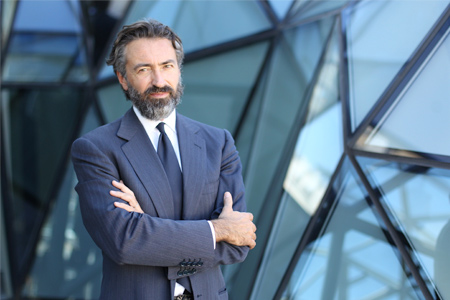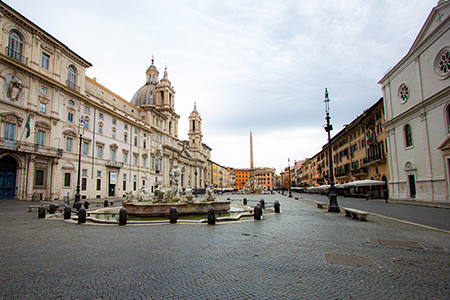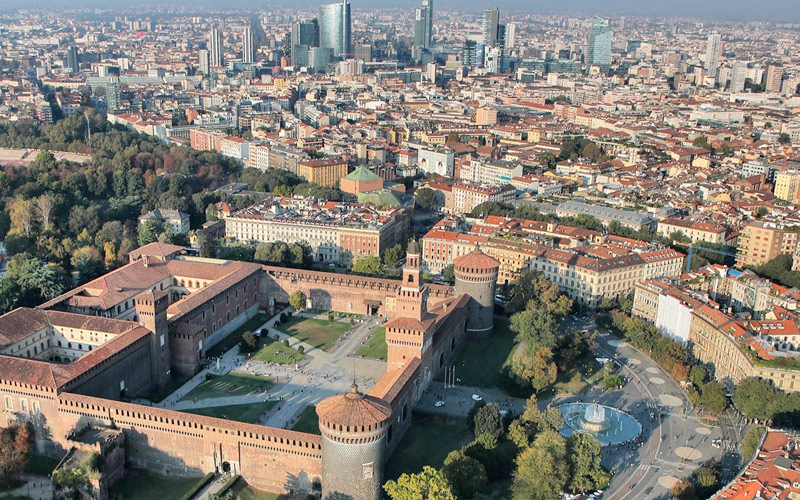The pandemic has had an inevitable impact on economies around the world, much as it has in our country. In this respect, the property market is no exception: property investments in Italy have fallen by 15% compared to the 6.3 billion invested in 2019, and this has been only partially offset by the growth in other segments as the the logistics one.
As in all times of crisis, the health emergency - which rapidly expanded its scope to become economic and then systemic - must nonetheless also be interpreted as an opportunity to usher in a new phase of regeneration of the cities and the lands that are Italy’s greatest asset.
This is the perspective from which Manfredi Catella, CEO and Founder of COIMA, expounded his ideas during his speech at the recent COIMA Real Estate Forum in Rome: “The global experience of the pandemic represents a historic and dramatic shift, yes, but one that is able to accelerate the establishment of a responsible and competent ruling class capable of leading an economic, environmental and social transition towards a more balanced and sustainable conception of capitalism”.

Manfredi Catella, Founder & CEO COIMA
On this journey, our country can enhance a unique advantage: “Italy has an extraordinary resource in the form of its land, which can now make a decisive contribution to the recovery which we now must all work towards”.
An opportunity to bring the focus of the debate back to Italian regions whose great wealth lies in their culture, architecture and town planning: “Central and Southern Italy will be at the heart of the country’s resilience plan. A process in which urban regeneration - also fostered by the extraordinary public funding programmes in partnership with the private sector - will play a key role”.
See also Planning resilient cities
Another objective which must see a joining of forces is the creation of resilient cities and neighbourhoods. This deliberate term, “resilience”, implies the need for truly extensive urban transformation, founded upon a holistic approach and the quality, which involves dimensions that are only seemingly remote, but all dedicated to facilitating the lives of the people who live in these cities: digitalisation, the centrality of transport and infrastructure, the enhancement of public spaces. At the heart of this evolution, a new approach to sustainability is declined, with roots in a strong cultural, social and environmental vision, as well as a scientific quantitative method, able to develop impact investments by means of measurable ESG criteria.
COIMA is supporting this vision through its in-house task force of experts at the COIMA City Lab, for which architect Stefano Boeri was the spokesman during the Forum, highlighting the importance of the concept of proximity within the polycentric cities of the future.
See also Cities, capitals and skills for a sustainable recovery
The Resiliency and Recovery Facility provided at the European level may well prove to be the accelerator capable of initiating a virtuous path of regeneration for Italy’s cities.

Rome, aerial view of Flaminium district
According to Manfredi Catella, the cities of Central and Southern Italy must be the focal point of this path, including with the assistance - if necessary - of public funding programmes in partnership with the private sector. It is no coincidence that Rome was selected to be the stage for this year’s Forum, as it is a prime example of this: “a city that requires a single, overarching vision, managed uniformly with the contribution of all the relevant public institutions, with the aim to select pilot projects for local regeneration coherent with the guidelines of Next Generation EU”.

Empty streets in Rome, because of the pandemic
The centrality of the cities in the centre and south, starting with the capital; the sustainability and excellence of the buildings; the priority given to urban connections and the availability of public spaces and services for citizens, designed to be reachable from their homes “in just fifteen minutes”: this is COIMA’s proposal for the future of the cities in our country, as presented during the COIMA Real Estate Forum in Rome.




